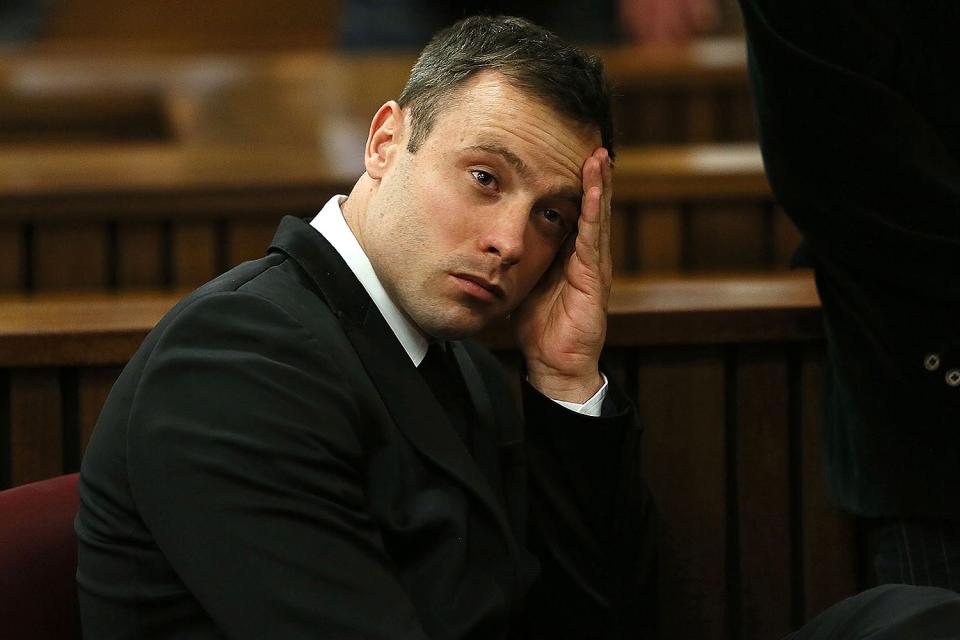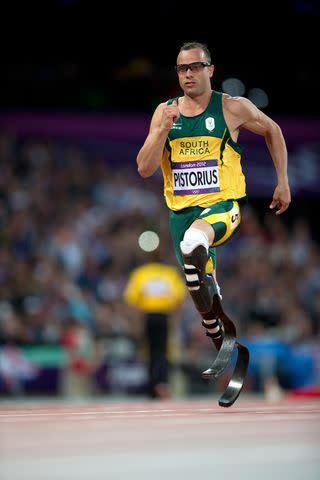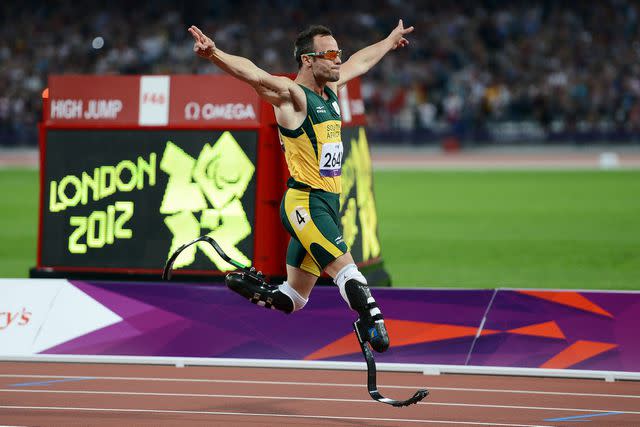Snubbed by the Paralympics and Working as a Janitor? What Is (and Isn't) True About Oscar Pistorius's Life After Prison
Oscar Pistorius was released from prison on January 5. Here's what he's been doing in his first four months of parole

At the height of his running career, Paralympian Oscar Pistorius was found guilty of murdering his girlfriend on Valentine’s Day 2013
The South African runner was sentenced to 13 years and five months and was released early on parole in January 2024
Based on his parole conditions, Pistorius is restricted from giving interviews, but his lawyer, Julian Knight, tells PEOPLE what he has been doing since moving in with his uncle in Pretoria, South Africa
Life after prison is an adjustment for everyone.
Oscar Pistorius is no exception.
The former track-and-field Paralympic champion – known as “Blade Runner” for competing with carbon-fiber prosthetic legs – was later convicted of the Valentine’s Day 2013 murder of his girlfriend, Reeva Steenkamp.
In January he was released from a South African prison, after serving more than eight and a half years of his more than 13-year sentence.
Now, four months later, Pistorius has settled into a quiet life in Pretoria, where he lives with his uncle, Arnold Pistorius.

Simon Bruty /Sports Illustrated via Getty
Oscar Pistorius in the Men's 400M Track & Field Semifinals during the 2012 Summer Olympics.Related: Oscar Pistorius's Shocking Fall from Grace in 6 Clicks
His uncle acts in the role of “caregiver,” who the Department of Correctional Services said in an earlier press release is charged with providing “a support system to adjust to the normal way of living” and coordinating with the department’s “monitoring officials.”
Pistorius’s parole conditions allow “limited time in the week to attend work commitments and church on Sunday,” his lawyer, Julian Knight tells PEOPLE.
“He is someone who gave everything he had to the world,” Knight says, adding that his “tragic mistake” has “cost him more than one can fathom.”

WALDO SWIEGERS/AFP via Getty
Reeva Steenkamp and Oscar Pistorius in a photograph taken Jan. 26, 2013, just weeks before he fatally shot her that Valentine's Day.Despite published reports claiming Pistorius had been rebuffed in his efforts to link back up with the International Paralympic Committee following his release and had instead taken up maintenance and janitorial work at his uncle’s church, the former athlete has applied to neither job, according to the committee, church and Pistorius’ lawyer.
“We are unaware of any contact between the International Paralympic Committee and Oscar Pistorius and believe our last interaction with him was in late 2012,” a spokesperson for the International Paralympic Committee tells PEOPLE. “There have certainly been no discussions that we are aware of regarding a collaboration or the potential for work.”
The Dutch Reformed Church Waterkloof said in a statement to PEOPLE that Pistorius “is not employed by the church in any capacity and there are no parole conditions obliging him to work at the church,” but that they “offer support” to the family as “members of the congregation.”
At the height of his running career, Pistorius was charged with Steenkamp’s murder after fatally shooting her through a bathroom door with bullets designed with metal talons to destroy organs and maximize blood loss.
In a high-profile 2014 trial, Pistorius claimed that he mistook his 29-year-old model girlfriend for an intruder. (Prosecutors said she had hidden in the bathroom after the couple fought.)
A South African judge acquitted Pistorius of murder, convicting him instead of culpable homicide, which is akin to manslaughter. But ultimately, in 2015, an appeals court convicted him of murder.
He was released on parole January 5 and will remain under supervision until his sentence expires in 2029.

Related: Oscar Pistorius Released on Parole After Serving Half His Sentence for Killing Reeva Steenkamp
“An elevated public profile linked to Pistorius does not make him different from other inmates nor warrant inconsistent treatment,” the Department of Correctional Services said in the press release, outlining some of his “general parole conditions.”
Like any other South African parolee, Pistorius is “expected to be home at particular hours of the day,” and required to participate in certain programs. (Among those programs was an anger management workshop, which his lawyer says is required for every inmate.)
The department adds that per general parole guidelines, Pistorius is prohibited from consuming “alcohol and other prohibited substances,” and “restricted from conducting media interviews.”
Pistorius’s lawyer confirms he is not required to wear an electronic monitoring device.

Related: Oscar Pistorius Trial: Testimony Attempts to Paint Blade Runner's Dark Side
Want to keep up with the latest crime coverage? Sign up for PEOPLE's free True Crime newsletter for breaking crime news, ongoing trial coverage, and details of intriguing unsolved cases.

Steenkamp’s mother is “not convinced” of Pistorius’s rehabilitation, she said in a victim impact statement in November.
“Rehabilitation requires someone to engage honestly with the full truth of his crime and the consequences thereof,” she said. “Nobody can claim to have remorse if they are not able to engage fully with the truth. If someone does not show remorse, they cannot be considered to be rehabilitated.”
In a statement she issued through a family lawyer after his release, she added: “We, who remain behind, are the ones serving a life sentence.”
For more People news, make sure to sign up for our newsletter!
Read the original article on People.


